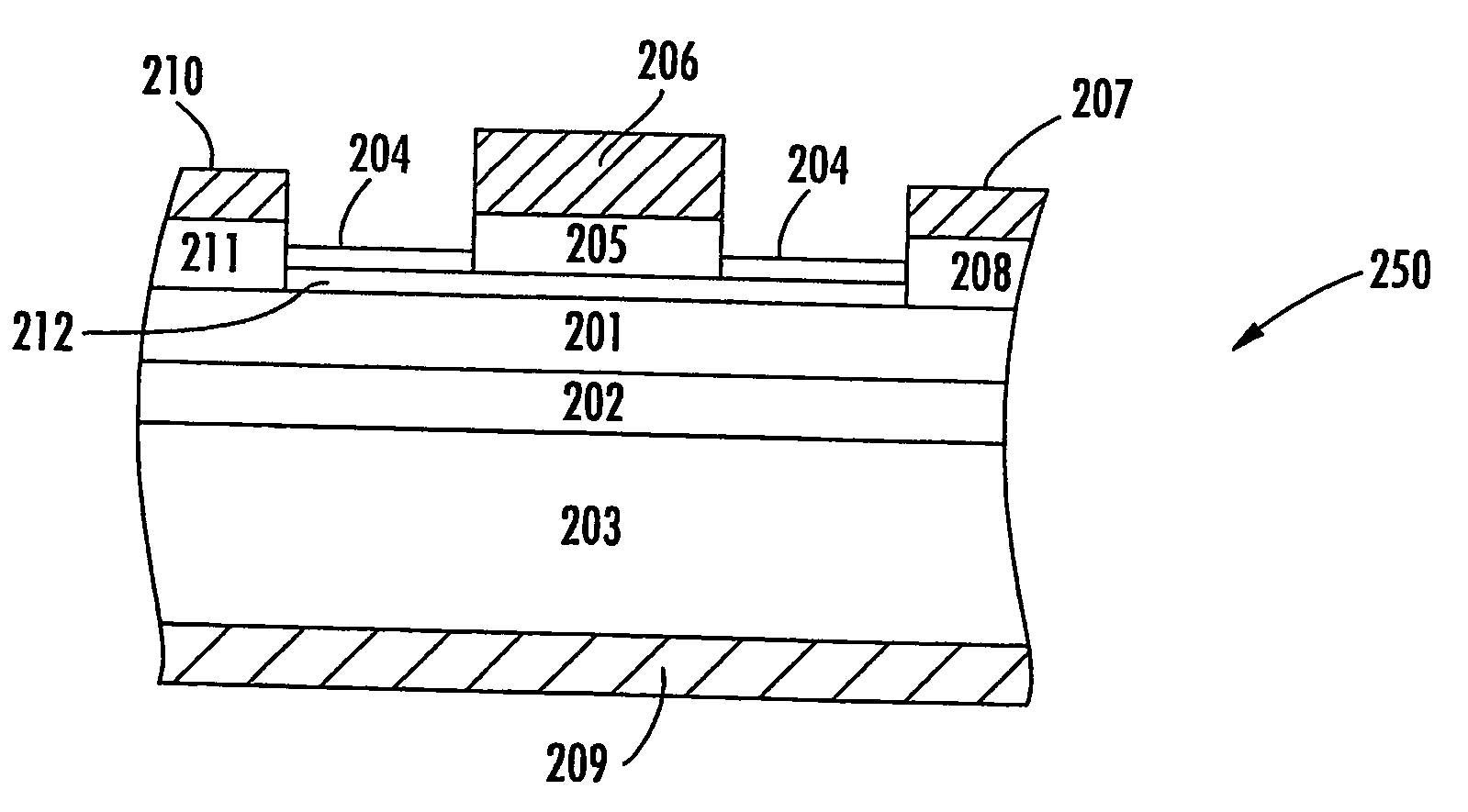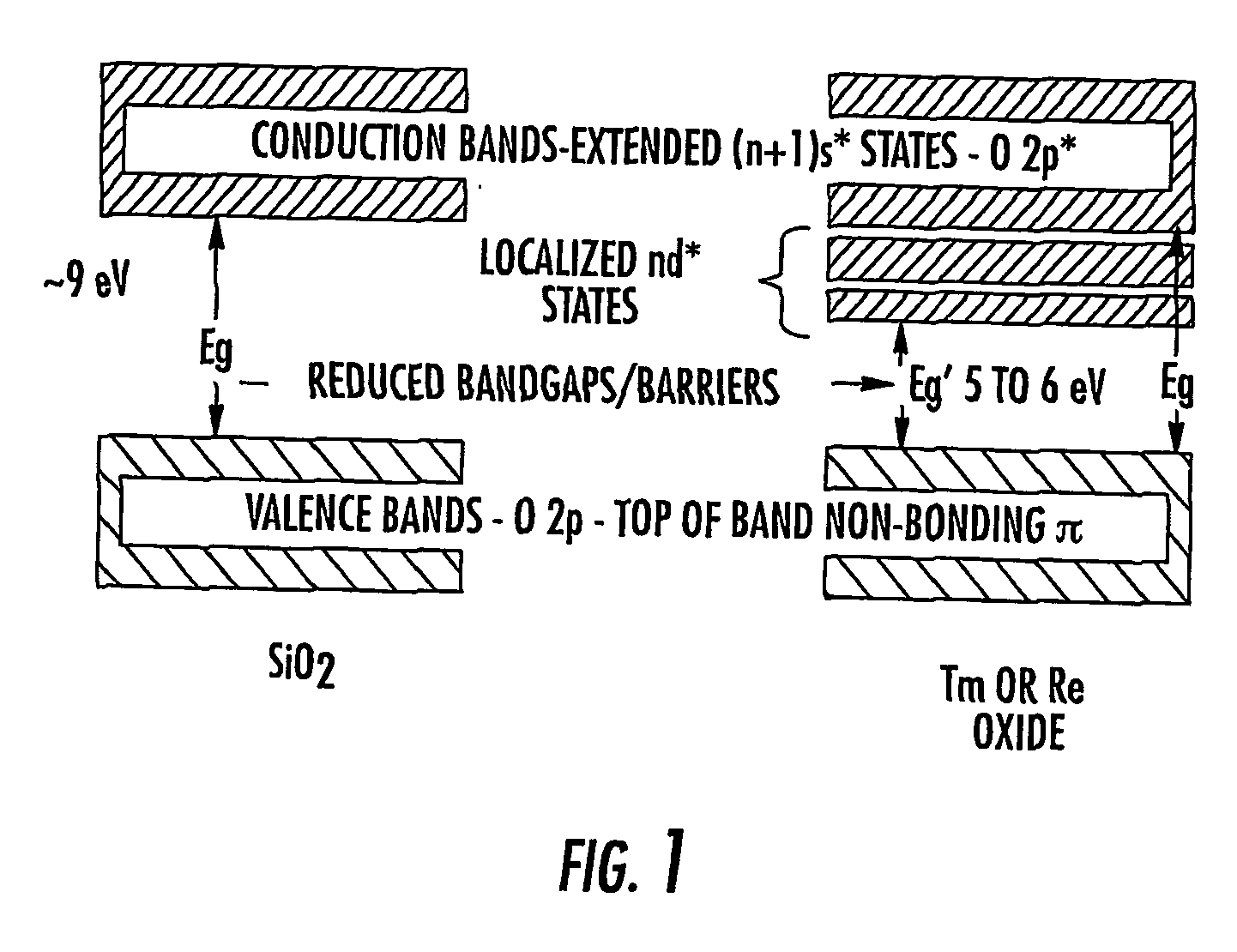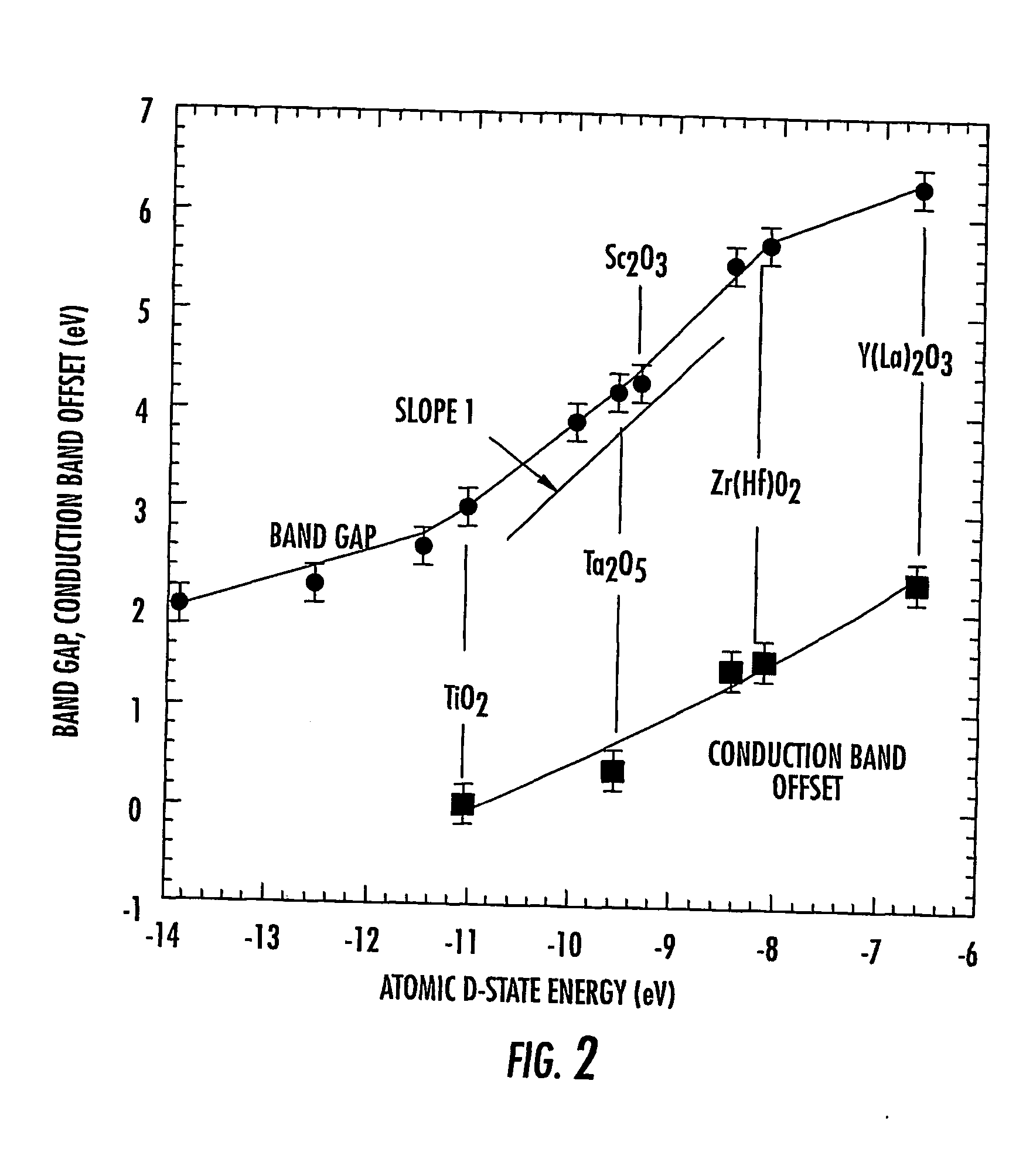Complex oxides for use in semiconductor devices and related methods
- Summary
- Abstract
- Description
- Claims
- Application Information
AI Technical Summary
Benefits of technology
Problems solved by technology
Method used
Image
Examples
example 1
[0084] A field effect transistor is formed according to the following procedure. Radio frequency remote plasma assisted oxidation using oxygen as the source gas is employed to form an SiO2 insulating layer on a Si-containing substrate such as Si, SiC or a (Si,Ge) alloy. The above process is carried out at 300° C. A thin film, stoichiometric, single-phase complex oxide according to formula (I) is formed on the insulating layer via a radio frequency remote plasma enhanced CVD deposition carried out at 300° C. The structure is then exposed to a post deposition rapid thermal anneal in an inert, non-oxidizing ambient such as helium or argon for e.g., 30 seconds at 900° C.
[0085] The resulting field effect transistor has an SiO2 insulating layer with a thickness of less than 0.5 nm (i.e., 5 Å) and a gate insulating layer physical thickness of more than 2.0 nm (i.e., 20 Å), that, in combination with the interfacial SiO2 layer is chosen to meet the targeted EOT, e.g., in the range of 0.7 nm...
example 2
[0086] A field effect transistor is formed according to the procedure set forth in Example 1 with the following modifications. The substrate is exposed to an N2 remote plasma to allow for the formation of silicon-nitrogen bonding at the surface of the silicon substrate. The other layers are formed in the manner previously described.
example 3
[0087] A field effect transistor is formed according to the procedure set forth in Example 1 with the following modifications. A remote plasma assisted oxidation using N2O instead of O2 is employed to form a thin SiO2 layer with silicon-nitrogen boding at the silicon substrate.
PUM
 Login to View More
Login to View More Abstract
Description
Claims
Application Information
 Login to View More
Login to View More - R&D
- Intellectual Property
- Life Sciences
- Materials
- Tech Scout
- Unparalleled Data Quality
- Higher Quality Content
- 60% Fewer Hallucinations
Browse by: Latest US Patents, China's latest patents, Technical Efficacy Thesaurus, Application Domain, Technology Topic, Popular Technical Reports.
© 2025 PatSnap. All rights reserved.Legal|Privacy policy|Modern Slavery Act Transparency Statement|Sitemap|About US| Contact US: help@patsnap.com



